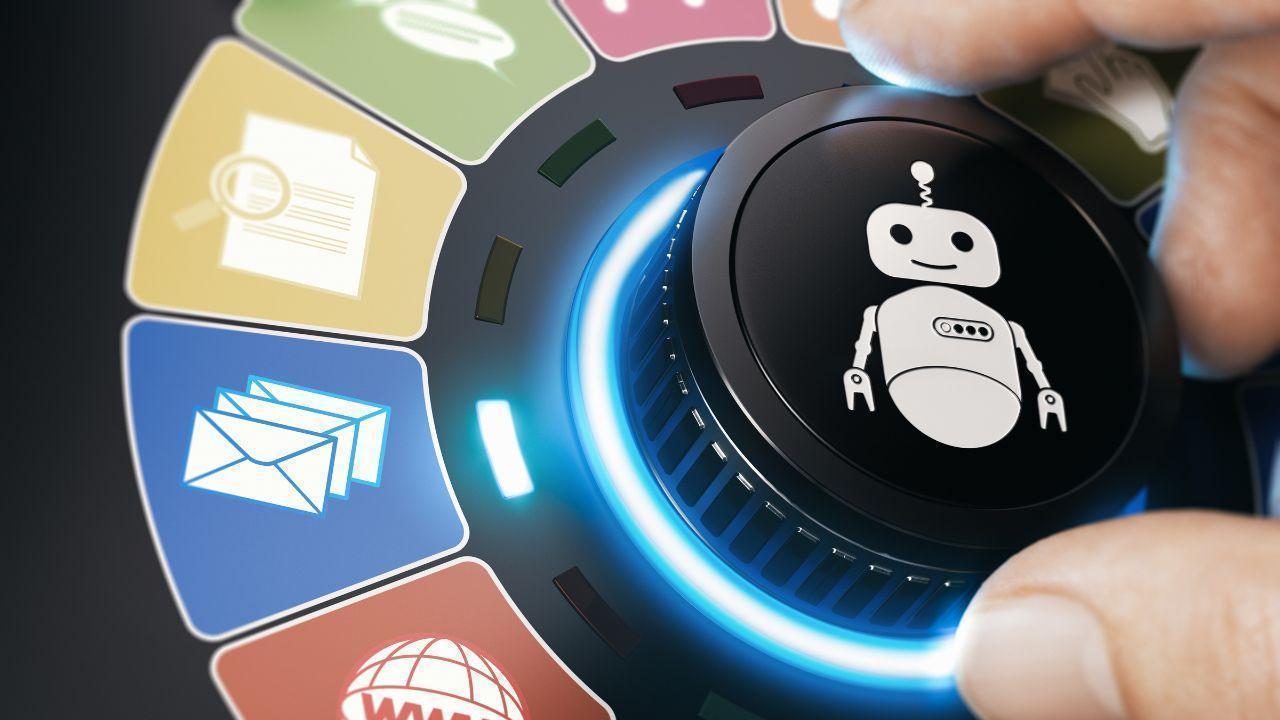
Post by: Zayd Kamal
Artificial Intelligence (AI) and automation have significantly changed the landscape of various industries, making processes more efficient and reducing human intervention. Over the years, advancements in machine learning, robotics, and data analytics have allowed businesses to optimize their operations. From automating repetitive tasks to making data-driven decisions, AI and automation are redefining how companies operate and compete in the global market.
One of the most significant advantages of AI and automation is the increase in productivity and efficiency. Automated systems can handle tasks at speeds and accuracies that surpass human capabilities. Industries such as manufacturing, logistics, and healthcare have integrated AI-driven automation to streamline workflows. In factories, robotic arms assemble products with precision, while in the logistics sector, AI-powered algorithms optimize delivery routes, reducing costs and improving speed. By automating repetitive and time-consuming tasks, businesses can focus on innovation and growth.
The healthcare industry has seen transformative changes with the adoption of AI and automation. AI-powered diagnostic tools can analyze medical images and detect diseases with remarkable accuracy. Automation in hospitals helps manage patient records, reducing administrative burdens on medical professionals. Moreover, robotic-assisted surgeries have enhanced precision, leading to better outcomes. Telemedicine, powered by AI, has also become more accessible, allowing doctors to provide remote consultations and personalized treatment plans. These technological advancements are improving healthcare accessibility and saving lives.
The financial industry has embraced AI and automation to enhance security, detect fraud, and improve customer experiences. AI-driven chatbots assist customers with queries in real-time, while automated algorithms analyze market trends and make investment decisions. Banks and financial institutions use AI to assess credit risks and streamline loan approval processes. Fraud detection systems powered by AI can identify suspicious activities and prevent cyber threats. With the integration of automation, financial services have become more secure, efficient, and customer-friendly.
Retail and e-commerce industries have leveraged AI and automation to personalize shopping experiences and optimize inventory management. AI-powered recommendation engines analyze customer preferences and suggest products tailored to their interests. Automation in warehouses, through the use of robotic systems, ensures faster order fulfillment. AI-driven chatbots provide seamless customer service, answering inquiries and resolving issues instantly. These innovations enhance customer satisfaction and drive business growth in the competitive retail market.
Education has also benefited from AI and automation, making learning more engaging and personalized. AI-powered platforms can analyze student performance and adapt lessons accordingly, providing customized learning experiences. Automation in administrative tasks, such as grading and attendance tracking, reduces the workload for educators, allowing them to focus more on teaching. Virtual tutors and AI-driven educational tools enable students to access quality education from anywhere in the world, bridging learning gaps and enhancing knowledge retention.
The manufacturing sector has undergone a revolution with the integration of AI and automation. Smart factories use AI-driven systems to predict maintenance needs, reducing downtime and enhancing productivity. Automated assembly lines ensure precision and consistency, minimizing errors and waste. AI-powered supply chain management helps manufacturers optimize inventory levels and streamline logistics. These innovations are increasing efficiency, reducing costs, and driving competitiveness in the manufacturing industry.
Despite the numerous benefits of AI and automation, challenges and ethical concerns must be addressed. The rise of automation has led to concerns about job displacement, requiring industries to reskill and upskill their workforce. Ethical considerations, such as bias in AI algorithms and data privacy, need to be managed responsibly. Governments and businesses must work together to establish regulations and ethical frameworks that ensure fair and transparent use of AI technologies. By addressing these challenges, industries can harness the full potential of AI while minimizing risks.
The future of AI and automation is promising, with continuous advancements reshaping industries and creating new opportunities. Emerging technologies such as quantum computing and AI-driven robotics will further enhance automation capabilities. Businesses that embrace these innovations will gain a competitive edge in the digital era. As AI continues to evolve, collaboration between humans and intelligent systems will become the norm, leading to increased efficiency, innovation, and economic growth.
Artificial Intelligence (AI) and automation are transforming industries by increasing efficiency, productivity, and accuracy. Businesses use AI to automate tasks, make data-driven decisions, and stay competitive in the global market. In healthcare, AI improves diagnostics, manages patient records, and enhances surgeries. The financial sector benefits from AI-powered fraud detection, real-time customer service, and smarter transactions. Retail and e-commerce leverage AI for personalized shopping and optimized inventory management. Education uses AI for adaptive learning and automated administrative tasks, while manufacturing benefits from smart factories and predictive maintenance.
Despite the benefits, challenges such as job displacement, data privacy, and ethical concerns must be addressed. Governments and businesses need responsible AI regulations to ensure transparency and fairness. The future of AI promises more innovation, with emerging technologies driving greater automation and human-AI collaboration.
This article is published for informational purposes only. The views and insights shared do not reflect the official stance of DXB News Network. Readers are encouraged to conduct further research before making any business or financial decisions based on AI and automation trends.
#trending #latest #AI #Automation #Technology #Innovation #Future #DigitalTransformation #MachineLearning #BusinessGrowth #SmartTech #IndustryRevolution #breakingnews #worldnews #headlines #topstories #globalUpdate #dxbnewsnetwork #dxbnews #dxbdnn #dxbnewsnetworkdnn #bestnewschanneldubai #bestnewschannelUAE #bestnewschannelabudhabi #bestnewschannelajman #bestnewschannelofdubai #popularnewschanneldubai

Vikrant Karyakarte: The Artist Who Paints the Rhythm of Life....Read More.

PM Modi will visit Jeddah to meet Crown Prince MBS. Talks will cover strong ties, strategy, and new MoUs. This is his first visit in his third term....Read More.














Humanoid Robots Race with Humans at Half-Marathon in China
21 humanoid robots raced alongside runners in the Yizhuang half-marathon, showcasing robotic enginee

Woman Brain-Dead After Paris Cryotherapy Accident
A woman is brain-dead after a fatal cryotherapy accident in Paris that also claimed a gym worker’s l

A Chinar Leaf in the Desert: Zubair Kirmani and the Journey of Kashmir at World Art Dubai
A Chinar Leaf in the Desert: Zubair Kirmani and the Journey of Kashmir at World Art Dubai

Carla Gía Brings the Language of Duality to World Art Dubai 2025
Carla Gía Brings the Language of Duality to World Art Dubai 2025

Not Just a Painting, It’s a Pulse: Deena Radhi at World Art Dubai 2025
Not Just a Painting, It’s a Pulse: Deena Radhi at World Art Dubai 2025